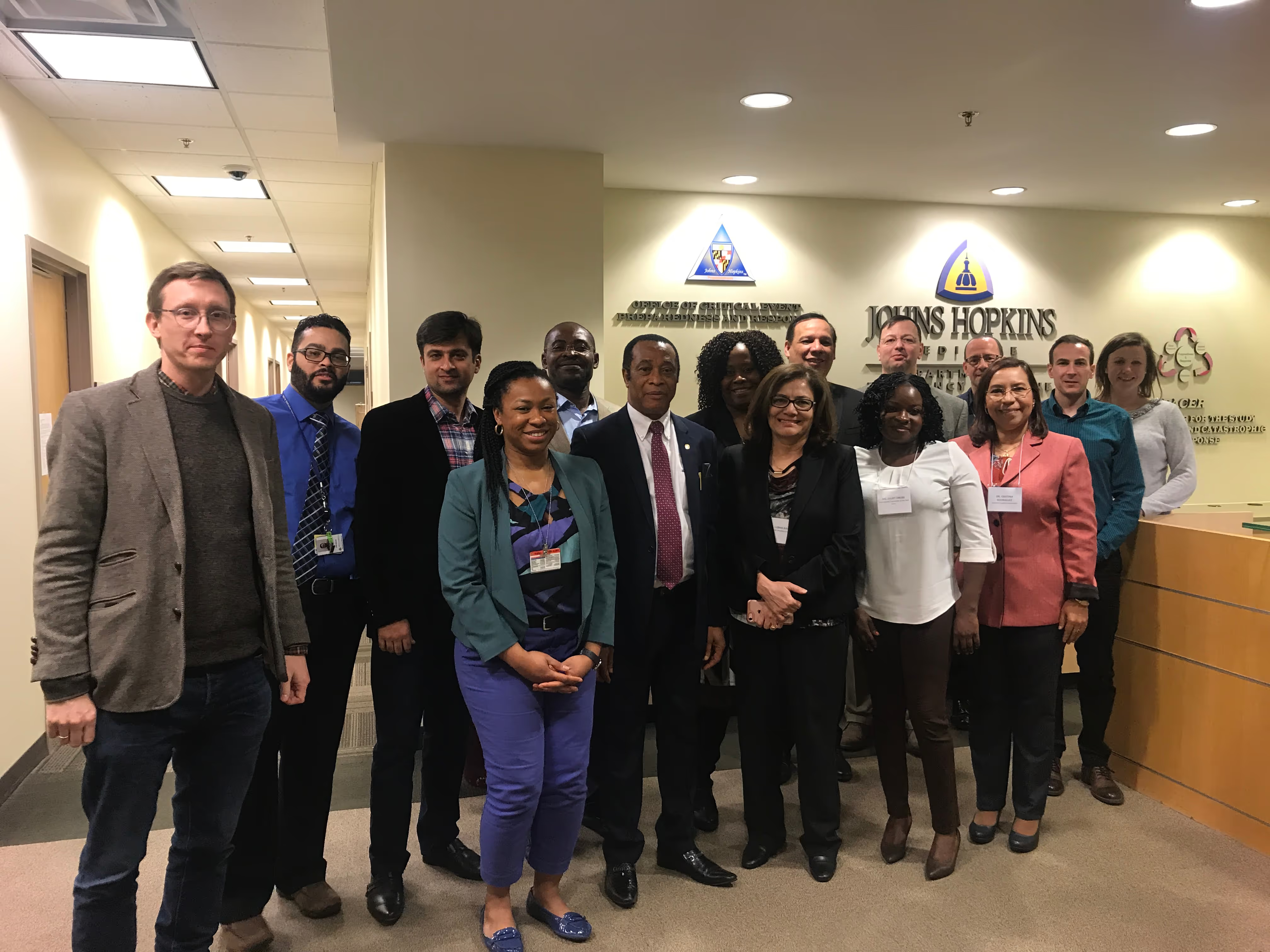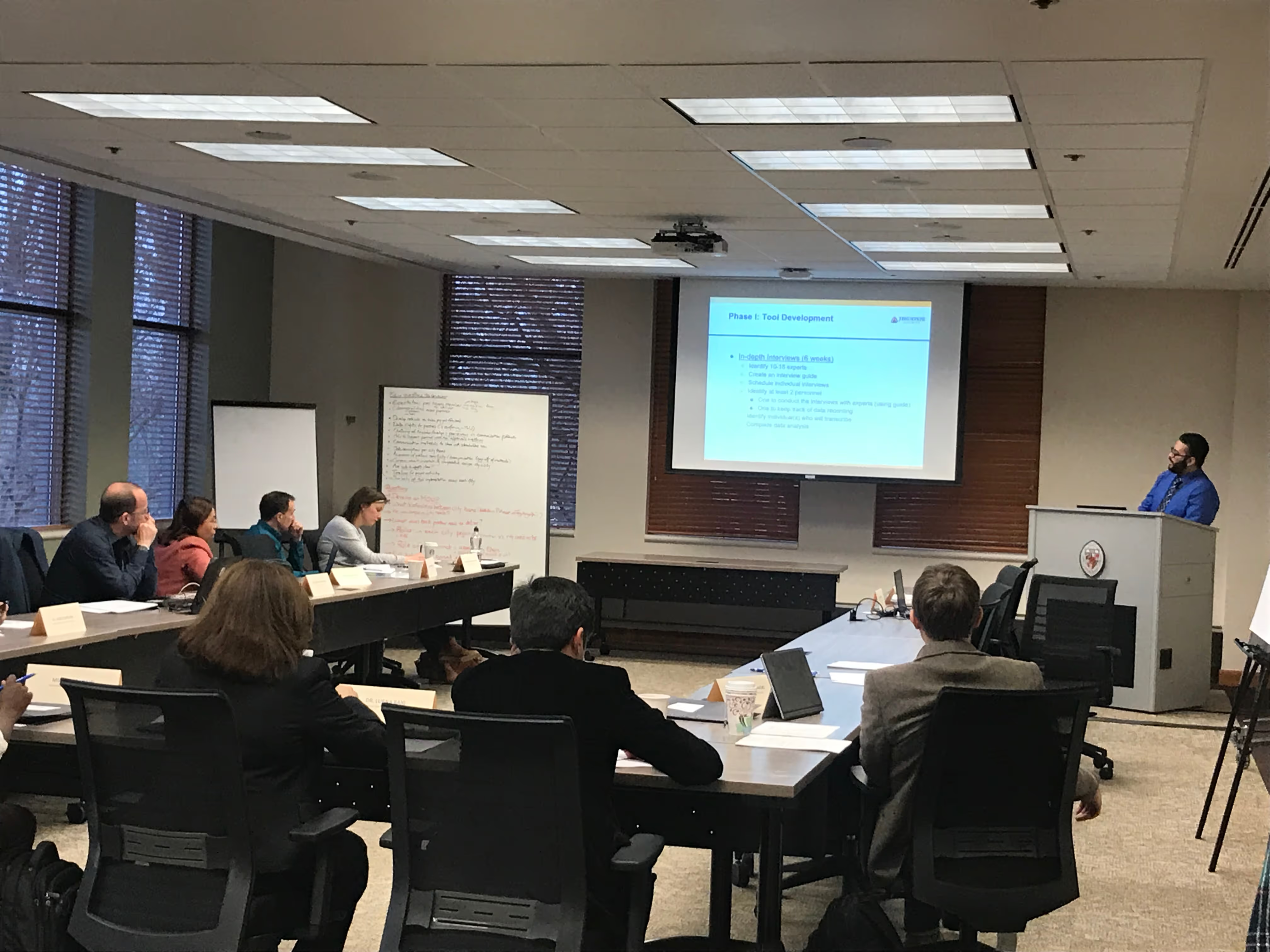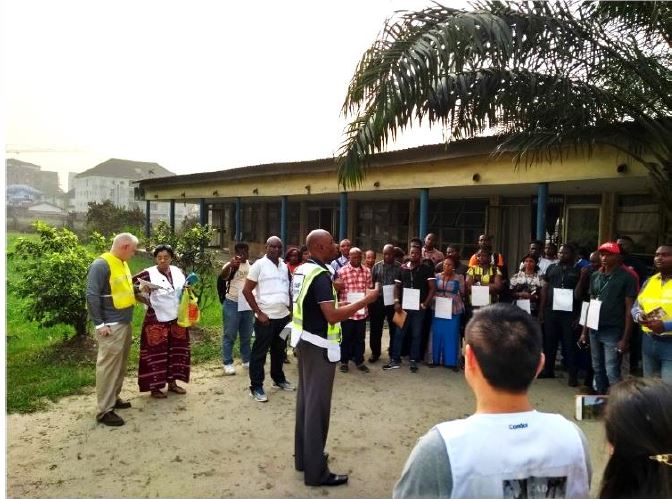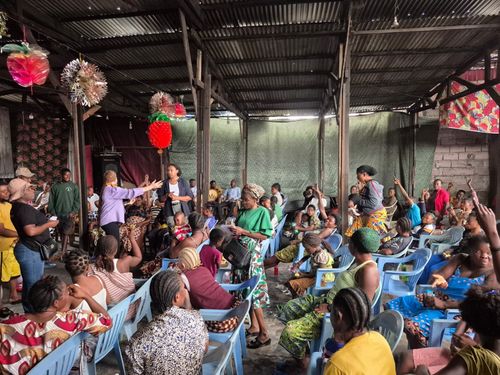Measuring Urban Capacity for Humanitarian Crisis: Piloting an Urban Health Response
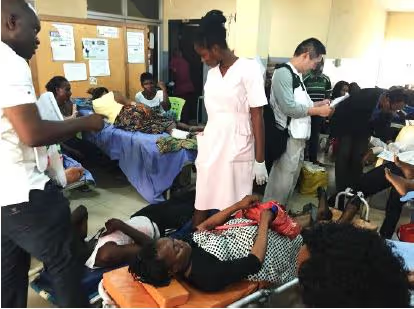
Project overview
Building capacity to respond to mass casualty events is an important consideration for urban health authorities. This research study produced evidence based on pilots of a new tool aimed at enabling city leaders to improve health system responses to disasters.
Countries
Brazil
Nigeria
Pakistan
Organisations
Johns Hopkins University School of Medicine
Partners
ICRC, Switzerland, APPNA Public Health Institute, Pakistan, ICRC, Pakistan, Universedade de Fortaleza, University of Port Harcourt
Area of funding
Humanitarian Research
Grant amount
£498, 491
Start date
01
November
2017
End date
01
April
2020
Project length (in months)
29
Funding calls
Focus areas
No items found.
Topics
Disaster Risk Reduction
Status
Closed
Project solution
This project offers [specific solution or intervention] to tackle [challenge]. By implementing [strategies, tools, or innovations], the project aims to achieve [desired outcomes]. The approach is designed to [specific actions or methods] to bring about meaningful change in [community, region, or issue area].
Expected outcomes
This project aims to achieve [specific outcomes], such as [measurable results, improvements, or changes]. The expected impact includes [benefits to the target community, advancements in research or innovation, or long-term effects]. By the end of the project, we anticipate [specific changes or milestones] that will contribute to [broader goals or objectives].
No items found.
Principal Investigator: Junaid Razzak, Weill Cornell Medicine
Research Snapshot: How can cities best prepare for disasters?
Building capacity to respond to mass casualty events is an important consideration for urban health authorities. This research study produced evidence based on pilots of a new tool aimed at enabling city leaders to improve health system responses to disasters.
[.cta_link]View Snapshot[.cta_link]
WHAT DID THIS STUDY SET OUT TO ACHIEVE?
Urban areas are at high risk of mass casualty events. No tool currently exists to help urban leaders predict their city’s performance in response to these and compare it to others. The project fulfilled it's aim to fill this gap by developing a tool - City All Hazard Mass Casualty Emergency Response and Action (CAMERA)- that can objectively measure and score the lifesaving capability of urban health systems in the aftermath of a mass casualty event.
CAMERA was developed through mixed-methods research, including a literature review, in-depth interviews, focus group discussions, and a modified Delphi process. The reliability and feasibility of the tool was demonstrated through testing in three low-middle income countries: Karachi (Pakistan), Fortaleza (Brazil), and Port Harcourt (Nigeria). Its validity was ascertained by comparing the results to full real-life disaster drills that that took place in Karachi and Port Harcourt.
Want to give CAMERA a go? Get in touch with the team here.
What were the key findings?
Through testing CAMERA and comparing its results to the disaster drills this study found that it is possible to develop a reliable and valid tool that can identify gaps in a city's medical response system, and help city authorities track and compare their own performance over time.
The gaps identified by CAMERA enabled recommendations to policymakers on areas such as hospital preparedness, ambulance services and command/communications. All three cities showed critical gaps in 'city preparedness' – frameworks and management structures which oversee and coordinate emergency response.
The findings were well-received in the local context and all three of the city authorities now have concrete next steps to improve the performance of their cities
What does this mean for policymakers and practitioners?
- Early response from policymakers engaged in pilot testing shows the tool can be a helpful approach to systematically test, monitor and improve emergency response plans. The detailed scoring system enables targeted improvements to be made.
- The tool is only a diagnostic. Implementation of the recommendations will require sustained political will, strong governance, and funding. Open, transparent sharing of CAMERA results with the public may incentivise cities in implementing recommendations.
- Health systems around the world need to be adequately prepared for disaster especially as the risk of climate-related natural events increases. The pilot suggests that some cities, especially those in low- income countries, may have critical gaps in emergency response preparedness. A global picture of mass casualty preparedness could be developed to inform coordinated efforts.
ICRC has announced that, together with its national partners, it will test the tool in more cities in Pakistan, in Lagos in Nigeria, and in cities in Lebanon. The research team aims to publish the CAMERA tool and make it publicly available once further validated.
A recorded webinar on the tool can be found here.
No items found.
Project delivery & updates
Stay up to date with the latest developments from this project. Here, you will find details on what has been delivered, resources created, and regular updates as the project progresses. Access key documents, reports, and other materials to see how the project is making an impact.
No resources/updates have been published yet for this project. Sign up for our newsletter to stay informed about upcoming publications and updates!
Join our Newsletter
Resources
Measuring Urban Capacity for Humanitarian Crisis: Piloting an Urban Health Response System Assessment Tool
Research brief
LEARN MORELatest updates
No items found.
